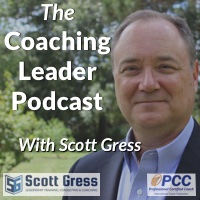
By now you are probably aware that the number of people who are self identifying as atheists, agnostics or “nothing in particular” has skyrocketed from 16% in 2007 to 23% in 2014 as reported by the Pew Research Center (https://pewrsr.ch/1cUpSZ9). It is probably even higher today. They further report that the highest percentage is among millennials at 35% and also among men. Let’s not mince words, this is a huge shift in religiosity in America in a very short time. Things like this just don’t happen this fast yet we are experiencing it right under our noses. At the same time there is a temptation to turn a blind eye to these changes because either we are stuck in our church “bubble” or frankly we may feel hamstrung to do anything differently. Instead we may be in denial of this massive shift happening right in front of us. But what do we do? We’ve heard all the knee jerk solutions before and intuitively and perhaps from our own experimenting we know that they just don’t make much of a difference. So what happens now?
First I think that a little perspective is in order. Ed Stetzer PhD, Executive Director of the Billy Graham Center for Evangelism at Wheaton College and previously the Executive Director of Lifeway Research, among other responsibilities reminds us: “A big part of what is happening is that the “Nominals”– and by that I mean nominal mainliners primarily, but nominal evangelicals as well– are shifting and becoming the “Nones.” This makes sense, as the cultural currency (in other words, the value a society places on identifying as a Christian) is decreasing. And thus, we see a movement away from Christian identity as a cultural value.” (https://www.visionroom.com/the-rise-of-the-nones/).
He goes on to say that Christians are continuing to lose the “home field advantage” in society. One of the impacts of this is that people are moving away from a religious memory that churches can appeal to. In other words, the attractional model of bringing people in through appealing music, worship and programs as “seeker” churches try to do, is becoming less effective. He says “they simply don’t find it appealing.” I would say, they are not looking for what you are offering. They don’t much care. The church is not on their radar.
Then in shifting to a more practical answer or direction he makes the point that “teaching believers to live on mission in their contexts, rather than just to bring their friends to church, is how we will reach the Nones.” Wow. That almost sounds like blasphemy. Not bring people to church? But wait, before you brush Stetzer off as a Cuckoo Bird, let’s hear what he is saying. Think of it this way:
If people are not seeking a church and don’t much care about churches, their programs or their music, then the “front line” of ministry is somewhere other than at the church building. This puts much greater importance on the personal witness of Christians to “live on mission” “in their contexts.” We know this to be true. Visitors are becoming much more sparse in our churches. Members are bringing less and less of their friends to church. Invitations to worship are not happening very much. Therefore the “front line” or “starting line” for engaging people happens in the community. This is what Stetzer is saying. He is not denigrating the church. The point is to be less “church centric” in all we do since it is no longer the “pillar in the community” and “social hub” that it once was.
I know that may sound incredibly discouraging if you have continued to read this far. We would like to remain in the bubble of our denial since it is so comfortable. But it begs the question, what does “living on a mission” really look like if not inviting people to church? What happens now?
Practically it means we need to be even more intentional about being Christians 24/7. Sunday Christians doesn’t cut it. It also means that programs and activities at church for church members has to be reconsidered and redirected. We need to steward our efforts to make a difference in the lives of those who are around our churches. This isn’t just an integrity issue, that as people see our good works they will glorify our Father who is in heaven, it is also being salt and light (Mt 5:16).
Then through these concrete expressions of love, people will perhaps become involved with us. They may not be believers or church goers but they may join in because they too want to “make a difference” and do something beyond pleasing themselves. It may look like the men of the church doing handyman chores for the neighbors where over time, the unchurched spouses of members or others who are unaffiliated join in. It may mean feeding people or clothing people or tutoring people. It probably means genuinely caring for our neighbors and helping them and deliberately praying for them, in person, when you have grown close and they trust you.
The point is that as we actually live out our faith with people, they may be shocked at how genuine we are without the bait and switch of trying to arm wrestle them to come to church with us. As we invite others who may be far from Jesus to help us help others, they may catch the gospel as well and over time come to faith. Sure it isn’t a quick fix. It isn’t a magic bullet or a program you can buy online. Yet it is authentic Christianity, without the gimmicks of the t-shirts promoting the building.
It’s all about Jesus. So when they ask what’s going on or why we do what we do, even if it take years for them to ask, we can say, “Let me tell you about Jesus…”
Sign up for our email newsletter with new blog posts and information and announcements:
Scott Gress is called by Lutheran Counseling Services and partners with the FL-GA District of the Lutheran Church as an independent contractor. He specializes in Leadership Training, Consulting, Coaching and Coach Training. Contact Scott to continue the conversation or experience a free sample coaching session. 561-542-4472, scottgress@me.com or scottgress.com
"Coaching leaders of leaders"
Check out the new: Coaching Leader Podcast!

